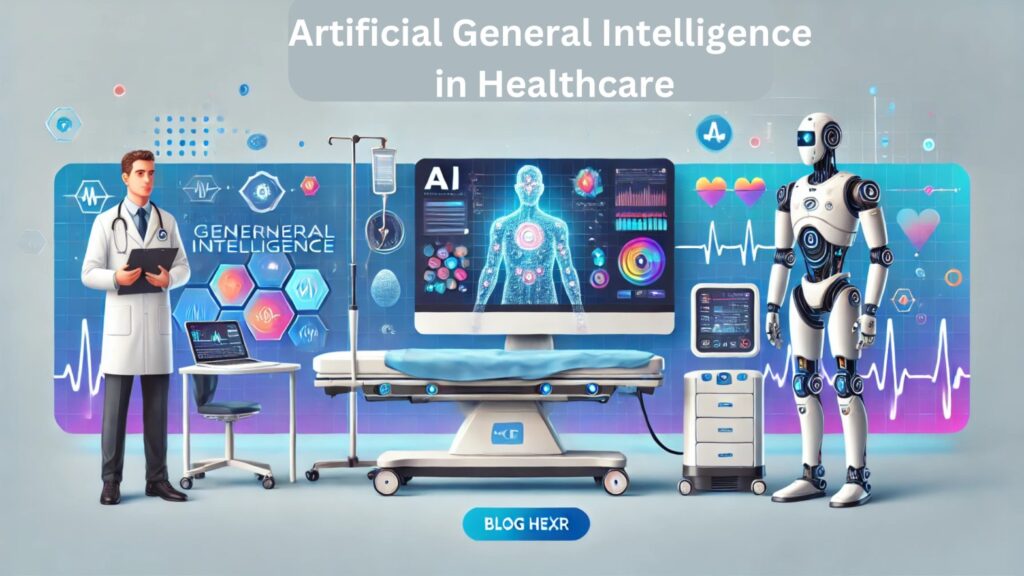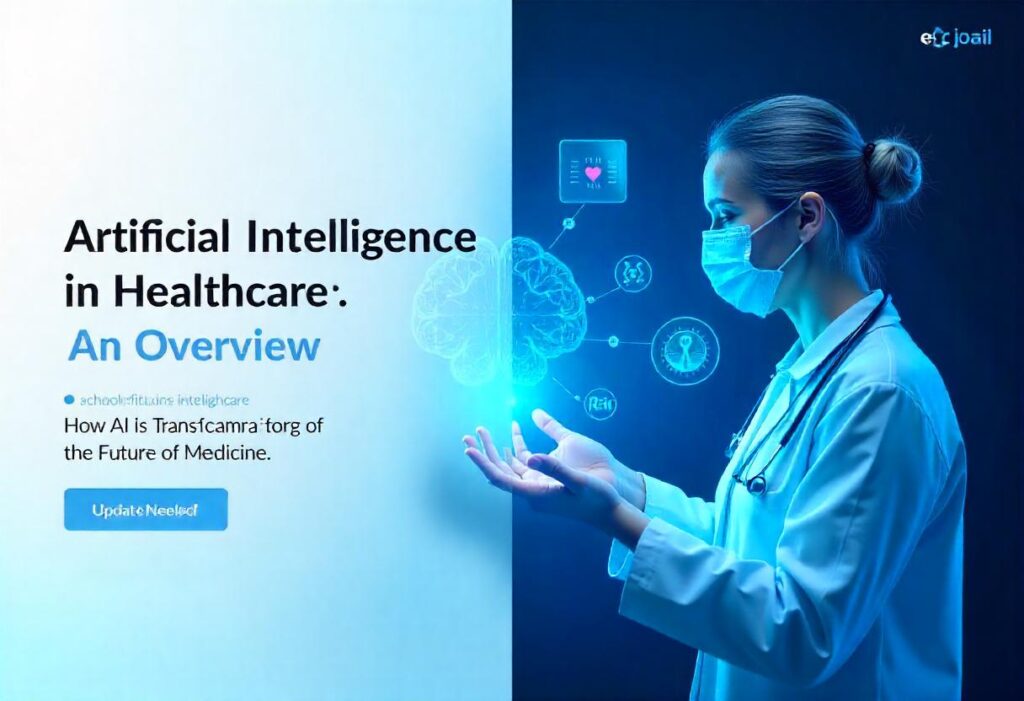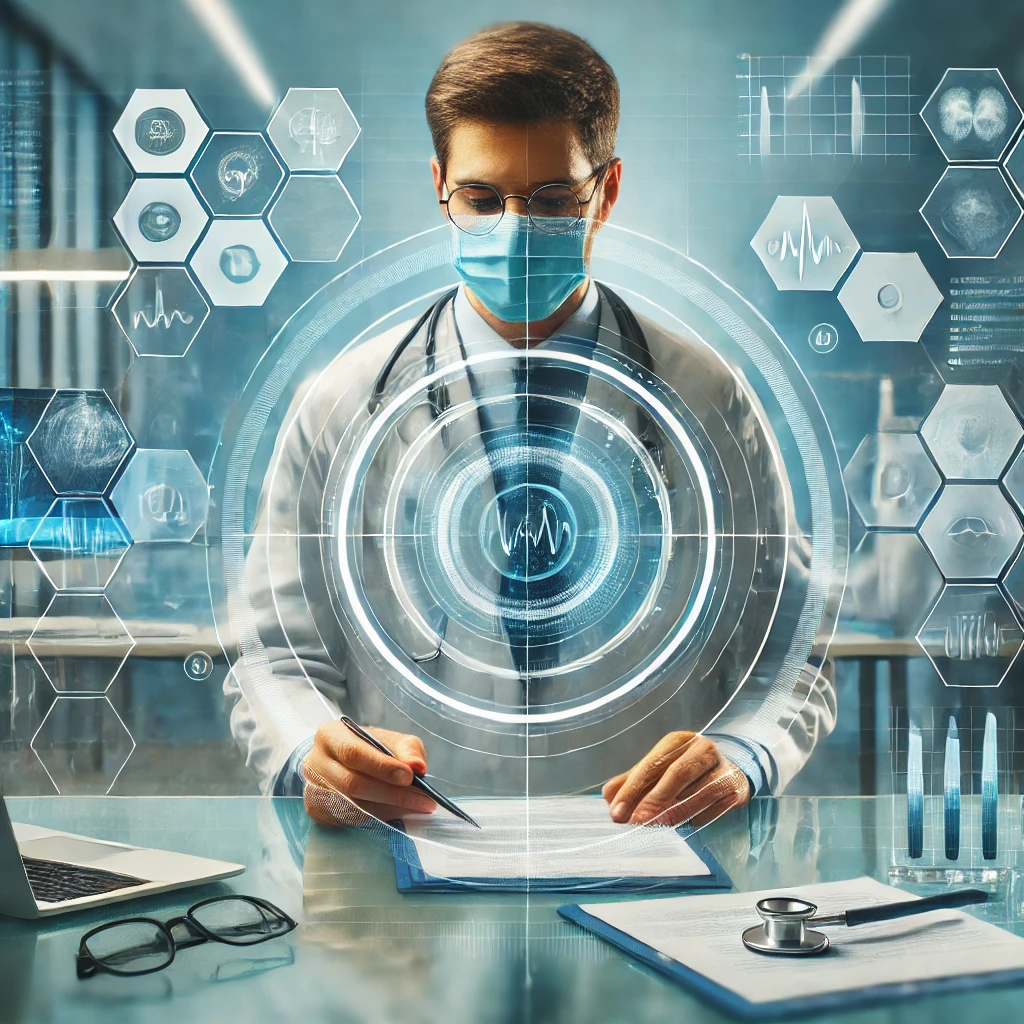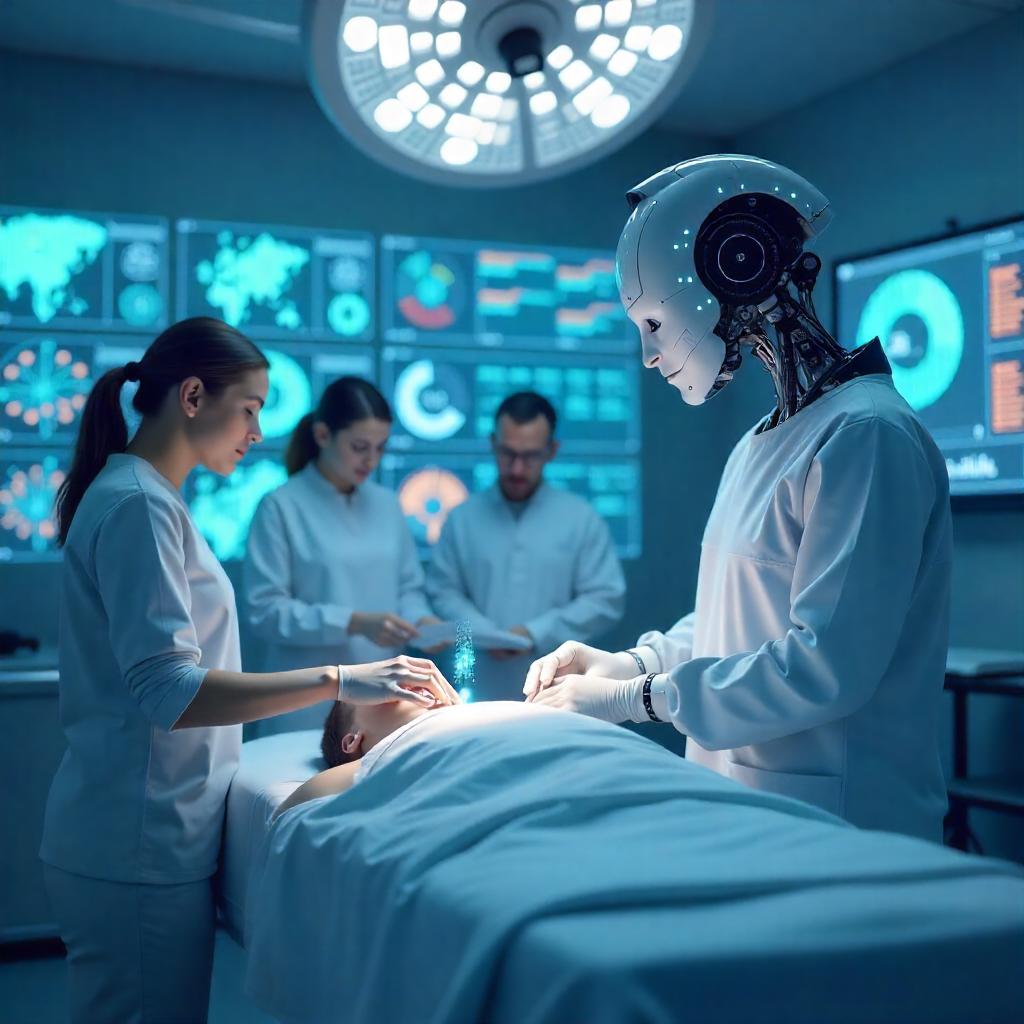
How Artificial General Intelligence in Healthcare Will Revolutionize the World of Health
Artificial General Intelligence (AGI) in healthcare is still at a distance where they assume human-like levels of intelligence and can work accordingly. Compared to the long-tailed concept of narrow AI that is aimed at solving particular tasks, Artificial General Intelligence in Healthcare (AGI) can address complicated, cross-discipline challenges in the sphere of healthcare and bring changes on this basis.
Intelligent and continuous processing by Artificial General Intelligence in Healthcare (AGI) in health care can dramatically redesign diagnostic precision combined with patient’s background data, genetic records, imaging in a very large setting to deliver customized treatment. For example, AGI should be able to inform people of disease likelihood in consideration to general trends of health, the environments, and advise onitures.
Also, integrated with the concept of artificial general intelligence in health care View could help organize the procedure of Artificial General Intelligence in Healthcare administrative tasks related to treatment, supply and other necessary requirements for hospital, improve the resource management, and increase the quality of patient care services. Addition of Artificial General Intelligence in Healthcare into telemedicine can help enhance the process of remote patient monitoring by increasing its smartness to allow for immediate response without straining the available health facilities.
This first-level learning, of which Artificial General Intelligence in Healthcare is a pioneer, can be expected to generate a future in which healthcare becomes increasingly preventive, personal, and efficient. If citing the recent advancements in research and development, synthetic general intelligence in health care now stands ready to fill in the gaps that are besetting current global health systems and change the matter of delivery of medical services.
The incorporation of Artificial General Intelligence in Healthcare(AGI) into this health care systems also holds the potential of solving the current global human professional deficit. By performing simple tasks like analyzing medical reports, sorting patients records, Artificial General Intelligence in Healthcare (AGI) frees doctors and nurses time to function in areas that require Artificial General Intelligence in Healthcare their human value namely time, emotion, and intellect. He noted this as particularly important for extended regions with inadequate access to quality health care services. With AGI, patients are likely to get the desired output in terms of consultations and Artificial General Intelligence in Healthcare recommendations, and this will bring together patient need and healthcare access.
Artificial Intelligence in Healthcare: An Overview

In recent years Artificial Intelligence (AI) has transformed almost all the sectors and has transformed the healthcare sector significantly. Even to present, there are many versions of Artificial General Intelligence therefore, Artificial General Intelligence in Healthcare is a revolutionary technology ambitious enough to redefine the way medical services are delivered. This blog is a comprehensive guide to understanding how AI notably AGI is redesigning the services delivery of the global healthcare industry.
The Role of Artificial Intelligence in Healthcare
AI in healthcare covers a broad area of activities ranging from enhancing diagnosis of a disease to valuation of patient outcome by providing predictions. As a result of this artificial intelligence powered systems can take large amounts of medical information, process that information and then come up with recommendations that the healthcare professionals can use. For example, in analysing radiology images, usage of AI results in identifying abnormalities resulting to increased accuracy.
The Future of Artificial General Intelligence in healthcare(AGI) in Healthcare
Healthcare AI can thus be defined as a large range of activities, from assisting in disease diagnosis and making predictions about patients’ outcomes. In the near future, with the arrival of AGI, it will be evident how healthcare systems interact with AI. Compared to the standard AI systems, AGI can accomplish any work a human brain is capable of and in the context of medicine it unveils a whole range of opportunities.
One of the most significant effects of Artificial General Intelligence in Healthcare (AGI) will be seen where diagnostics is concerned. AI solutions today are already capable of analyzing massive volumes of medical data and give suggestions that are employed by the medical practitioners to arrive at a decision. However, Artificial General Intelligence in Healthcare (AGI) could go one step further and actually analyze the patient’s history, compare the symptoms and give the correct diagnosis in the absence of a specific command to do so. For instance, in radiology, the AI systems are already better placed to analyze images to find out if there are some abnormalities. Artificial General Intelligence in Healthcare (AGI) can do better than this since it can not only detect the problem but also link it closer to a patient’s genetic, lifestyle, and environmental characteristics.
Furthermore, Artificial General Intelligence in Healthcare (AGI) has a possible application in the context of personalized medicine. In Artificial General Intelligence in Healthcare (AGI) system, through effective mathematical analysis of amount of genomics data, treatments can be selected suitable to any individual. Artificial General Intelligence in Healthcare This is going to change the nature of healthcare where instead of waiting for the symptoms to appear so that they can be treated, a condition that may cause poor health is first identified so that it can be prevented. This is mostly due to Artificial General Intelligence in Healthcare (AGI) abilities to collect and analyze big amount of data that will improve drug discovery processes and cut the amount of time and costs needed to create new medications.
The Future of Artificial General Intelligence in Healthcare
ASI or ASIH stands for Advanced Super Intelligence or Advanced General Intelligence and is a product of AI introduced to simulate and even surpass human intelligence. However, Artificial General Intelligence in Healthcare (AGI) includes the potentiality for doing various intellectual activities on par with the human brain and that within certain specified tasks, which is something completely different from current AI models that are of a considerably more narrow and staked kind. This qualitative advance is set to disrupt many industries, although the impact of disruption is expected to be most significant to the sphere of healthcare. And ranging from changing historic approaches in diagnosis arena, enhancing treatment outcomes, to providing patients with better access to the requisite services,Artificial General Intelligence in Healthcare (AGI), is anticipated to revolutionalise the practice of medicine.
Improving the nature of that identification and diagnosis
The role of Artificial General Intelligence in Healthcare (AGI) that shows the greatest potential, is the diagnostics. While current AI types can only work through diagnoses based on a given data set, which could include images or laboratory results, Artificial General Intelligence in Healthcare (AGI) additionally comes with the benefit of correlating data sets including but not limited to clinical histories, genetic predispositions, environmental factors and even lifestyles. Aging can therefore be managed and monitored through Artificial General Intelligence in Healthcare (AGI) to address overall patient health with increased likelihood of responding to early indications of serious diseases such as cancer, cardiovascular diseases and neurological disorders.
For instance Artificial General Intelligence in Healthcare ( AGI)-powered systems can assess millions of imaging scans such as radiology scans within seconds while these come with incredibly small distortions which the human eye cannot detect. This capability means that there is likely to be higher accuracy, lower diagnostic mistakes, and quicker choices. In addition, it can compare the outcomes with the international clinics’ databases, offering doctors more information on patients with disorders and atypical manifestations of diseases, so (AGI) can advance the ability to provide accurate and personalized diagnosis.
Diagnostic Accuracy
Among other virtual prospects of Artificial General Intelligence in Healthcare (AGI), the improvement of diagnostic precision is among the most capacious. Advanced Graphic Interface systems allow for the handling of large amount of data medical images, genomic sequences etc. and accomplish this with higher precision than human.

operators. It even possible to diagnose such diseases as cancer or rare genetic disorders, and the performance of such systems is less likely to have a human error. While AGI tried to look for patterns in multiple data Artificial General Intelligence in Healthcare types, and compare them to patterns in medical data, it can pick up early signs of disease that practitioners may overlook, and hence allow disease to be detected right from the early stages.
Robotic Surgeries
At the core of (AGI) is the possibility of improving robotic surgery by offering machines the ability to conduct such operations to a standard of precision that has never before been seen. Thus, the Artificial General Intelligence in Healthcare (AGI)-powered robotic surgical systems can explain all data collected in the moment of surgery, including patient’s vital signs, current state of the surgery, or even state of the equipment being used, in order to produce the best result possible. Compared to representations and versions of so-called AI, these neural network

and versions of so-called AI, these neural network systems are far more trustworthy since they are able to avoid the accumulation of huge errors in surgery, and improve themselves while taking data from vast datasets.
https://chatgpt.com/With Artificial General Intelligence in Healthcare (AGI) we can extend the possibilities of robotic surgery by allowing the surgical robot either act fully autonomously or semi-autonomously with human surgeons. This can bring down risks that are linked to human error hence, improved, and shorter recovery period, lesser complications and improved surgical results for the patients. Further, the use of in Healthcare (AGI)-powered robots means that they can do surgeries in peripheral areas where the specialized expertise maybe scarce thus giving hope to such patients.
Healthcare Accessibility
One of the most significant problems in the health care sector in the present world is the shortage and poor supply of qualified professional health care workers in rural and remote facilities. AGI should be of immense help in the attempt to deliver the health care services to the deserving clientele. Using AI-powered diagnostic technologies, telemedicine and self-sufficient medical technologies, healthcare can be brought to clients who don’t have regular access to highly specialized specialists.

For instance, AGI-powered telehealth systems are capable of determining patients’ conditions, diagnosing patients slightly above what a doctor would diagnose and extend an appropriate recommendation on the bit of instruction given to the system. Regardless of the degree of the isolation of the area, AGI can be helpful in constant supervision of a patient’s state, chronic treatment, and sometimes emergency treatment if needed. This can particularly have positive effects on health in regions that are rural and alleviate pressure on the healthcare equipment in urban area.
Artificial Intelligence in Healthcare Courses
If you want to build a career in AI and healthcare, the following courses can be helpful:
Introduction to AI in Healthcare
Deep Learning for Medical Imaging
AI in Drug Discovery
Ethics and AI in Healthcare
AI and Machine Learning in Biomedicine
Most Asking FAQs
Q1: How does artificial intelligence benefit the healthcare sector?
Ans: AI makes healthcare efficient by enabling accurate diagnosis, personalized treatment plans, and predictive analytics.
Q2: What is the role of generative AI in healthcare?
Ans: Generative AI is used in medical imaging, drug development, and creating virtual assistants.
Q3: Can AI replace healthcare professionals?
Ans: No, AI is a tool that enhances the efficiency and accuracy of healthcare professionals.
Q4: Where can I take a course on artificial intelligence in healthcare?
Ans: Platforms like Coursera, edX, and DigiPerform offer certified AI healthcare courses.
Conclusion
By continued investment, development and adoption, the future of AI in healthcare is quite promising. This paper seeks to examine the role played by Artificial Intelligence in healthcare both currently and its potential in the future. The advancement of relation to Healthcare is pointing to new heights of these developments, and better care solutions. Sites such as BoostDesignsHub.com are designed to bring you the latest trends in Artificial General Intelligence in the Healthcare field and such innovations as may transform the industry in the future. Please remain subscribed to learn just how these developments can enhance patients’ care making and revolutionalise healthcare provision across the globe.
